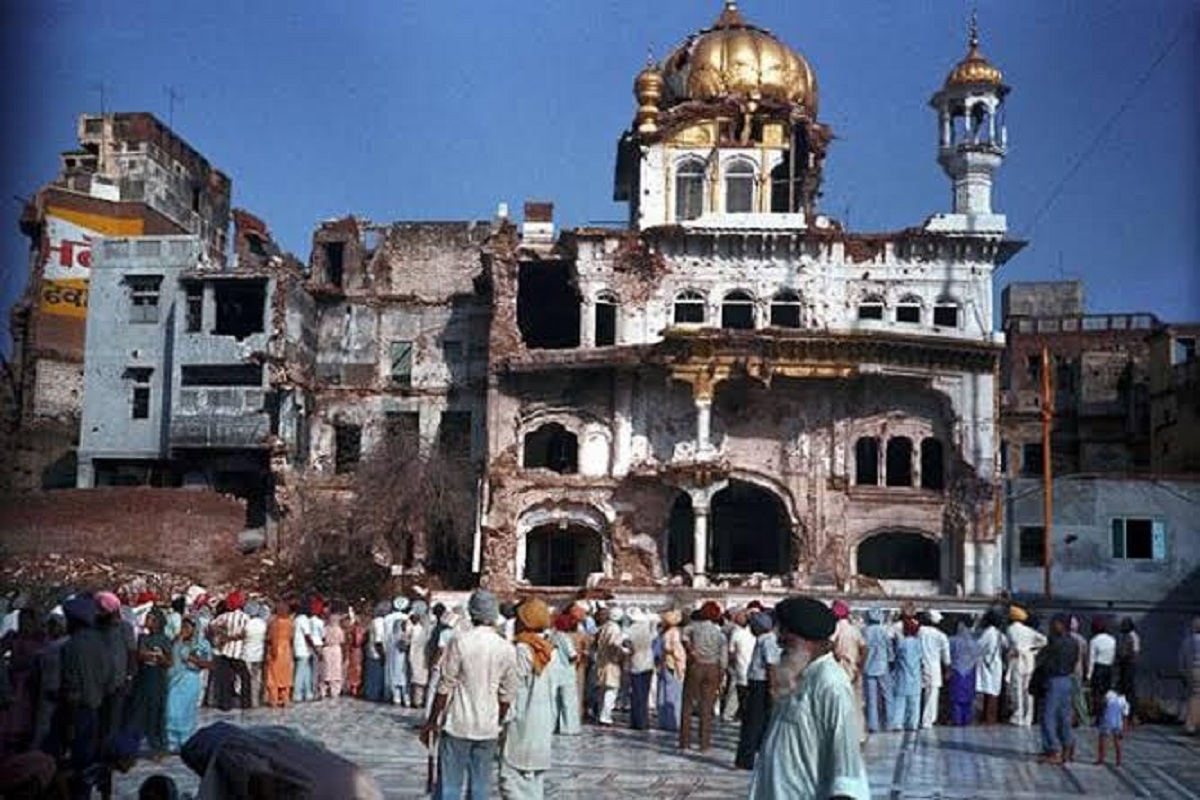India assumes Chair of Asian Disaster Preparedness Centre
India and eight neighbouring countries including Bangladesh, Cambodia, China, Nepal, Pakistan, Philippines, Sri Lanka and Thailand are the founding members of ADPC
Many Sikh troops abandoned their regiments in the army, and several Sikhs resigned from civil administrative positions and returned Indian government honours.

Photo: File photo
In June of 1984, the Indian Army started an operation to clear militants from the Golden Temple in Amritsar, which lasted 38 years. In the 1980s, Operation Bluestar had a significant impact on Indian politics.
Indira Gandhi, the then-Prime Minister of India, had ordered the military operation. Several people were killed and the temple was destroyed during the operation, which took place between June 1 and June 8, 1984.
The operation was aimed at neutralizing Sikh preacher Jarnail Singh Bhindrawale and his armed supporters who had taken up residence in Amritsar’s Golden Temple complex.
Advertisement
At the height of Sikh militancy, Bhindranwale was a powerful leader who effectively ran a parallel state from within the temple complex.
The Sikh community was outraged at what they saw as a desecration of the sacred shrine, and India’s then-prime minister, Indira Gandhi, was assassinated by her own Sikh bodyguards later that year.
Anti-Sikh riots erupted in the aftermath of the assassination, with 3,000 people slain, many of them on the streets of New Delhi.
In 1985, the Shiromani Gurdwara Parbandhak Committee (SGPC) filed a damages suit for Rs 1,000 crore in relation to Operation Bluestar. The matter has been lingering for some time, and now, on the court’s orders, the supreme Sikh religious organization is scheduled to initiate out-of-court negotiations with the Union government.
The SGPC filed the suit in the Delhi high court under the leadership of its then-president Gurcharan Singh Tohra.
Indira Gandhi rejected the Anandpur Resolution on June 1, 1984, after failed negotiations with militants, and ordered the army to conduct Operation Blue Star, which targeted hundreds of Sikh temples across Punjab.
On the same day, Indian security forces launched Operation Blue Star, which resulted in the deaths of eight people when they fired into numerous buildings in order to assess militant training.
On June 3, 1984, a large number of army units and paramilitary forces surrounded the Golden Temple complex. The army’s official position was that warnings were issued to aid in the evacuation of pilgrims, but that no surrender or release had occurred by 7:00 p.m. on June 5.
Punjab has been placed under a 36-hour curfew, with all forms of communication and public transportation halted. The state’s electricity supply was also disrupted, resulting in a total blackout and isolation from the rest of the world. The media was completely censored.
Under the command of Kuldip Singh Brar, the army invaded Harmandir Sahib on the night of June 5th. By the morning of June 7th, the soldiers gained complete control of Harmandir Sahib. The army, civilians, and insurgents all suffered casualties. The operation assassinated Sikh leaders Bhindranwale and Shabad Singh.
On June 8, the army’s assault on the temple complex came to a conclusion. After that, a clean-up operation known as Operation Woodrose was launched across Punjab.
Sikhs all throughout the world condemned the military operations in the temple complex, which they saw as an attack on the Sikh religion.
Many Sikh troops abandoned their regiments in the army, and several Sikhs resigned from civil administrative positions and returned Indian government honours.
Indira Gandhi was assassinated by her two Sikh bodyguards, Satwant Singh and Beant Singh, five months after the operation, on October 31, 1984. The anti-Sikh riots of 1984 were sparked by public outrage over Gandhi’s death.
Advertisement